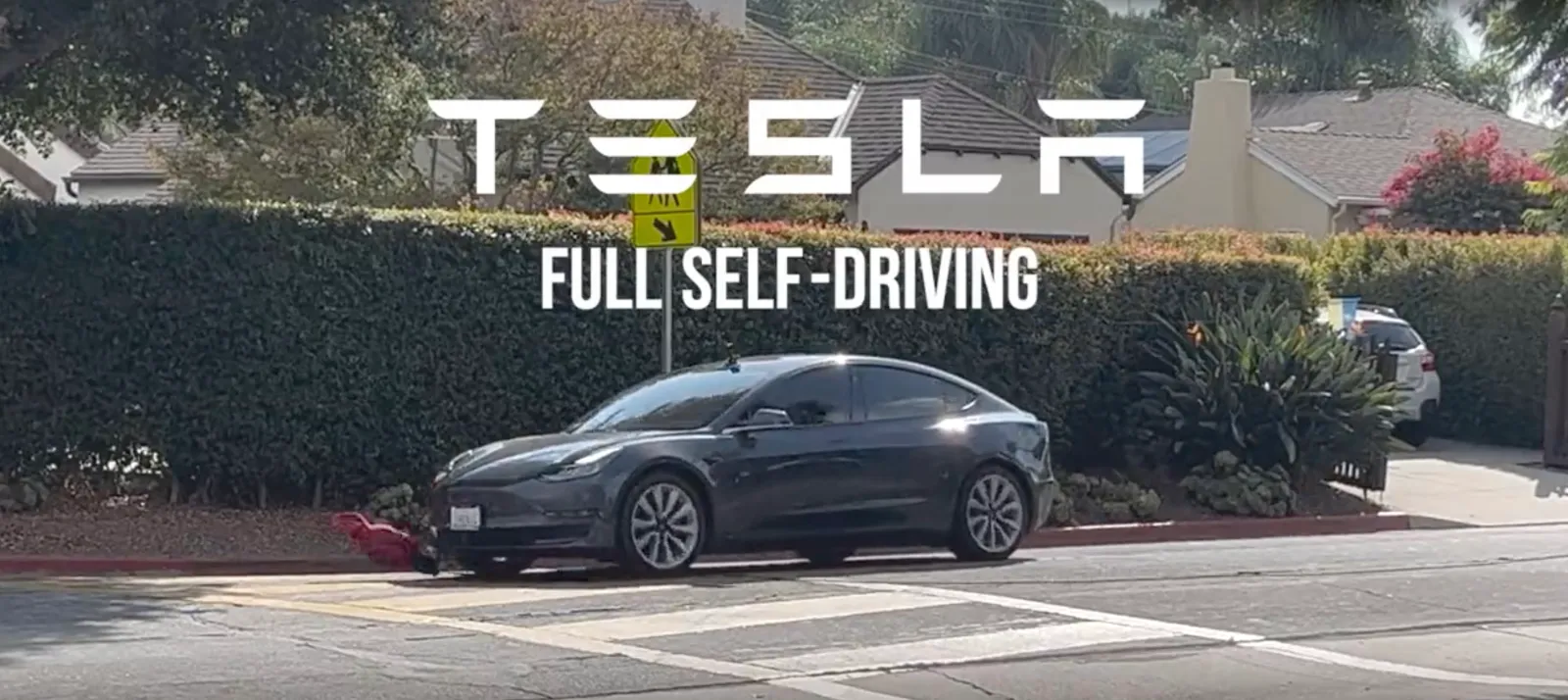
Tesla has been forced to reimburse a customer’s Full Self-Driving package after an arbitrator determined that the automaker failed to deliver it.
Tesla has been promising its car owners that every vehicle it has built since 2016 has all the hardware capable of unsupervised self-driving.
The automaker has been selling a “Full Self-Driving” (FSD) package that is supposed to deliver this unsupervised self-driving capability through over-the-air software updates.
Almost a decade later, Tesla has yet to deliver on its promise, and its claim that the cars’ hardware is capable of self-driving has been proven wrong. Tesla had to update all cars with HW2 and 2.5 computers to HW3 computers.
In January 2025, CEO Elon Musk finally admitted that HW3 also won’t be able to support self-driving and said that Tesla will have to upgrade the computers. 6 months later, Tesla has yet to communicate a plan for retrofits to owners.
Tesla is now attempting to deliver its promise of unsupervised self-driving on HW4 cars, which have been in production since 2023-2024, depending on the model. However, there are still significant doubts about this being possible, as the best available data indicate that Tesla only achieves about 500 miles between critical disengagements with the latest software on the hardware.
The situation is creating a significant liability for Tesla, which already needs to replace computers in millions of vehicles, and it may need to do so in millions more.
On the other hand, many customers are losing faith in Tesla’s ability to deliver on its promise and manage this computer retrofit situation. Some of them have been seeking to be reimbursed for their purchase of the Full Self-Driving package, which Tesla sold from $8,000 to $15,000.
A Tesla owner in Washington managed to get the automaker to reimburse the FSD package, but it wasn’t easy.
The 2021 Model Y was Marc Dobin and his wife’s third Tesla. Due to his wife’s declining mobility, Dobin was intrigued about the FSD package as a potential way to give her more independence. He wrote in a blog post:
But FSD was more than hype for us. The promise of a car that could drive my wife around gave us hope that she’d maintain independence as her motor skills declined. We paid an extra $10,000 for FSD.
Tesla’s FSD quickly disillusioned Dobin. First, he couldn’t even enable it due to Tesla restricting the Beta access through a “safety score” system, something he pointed out was never mentioned in the contract.
Furthermore, the feature required the supervision of a driver at all times, which was not what Tesla sold to customers.
Tesla doesn’t make it easy for customers in the US to seek a refund or to sue Tesla as it forces buyers to go through arbitration through its sales contract.
That didn’t deter Dobin, who happens to be a lawyer with years of experience in arbitration. It took almost a year, but Tesla and Dobin eventually found themselves in arbitration, and it didn’t go well for the automaker:
Almost a year after filing, the evidentiary hearing was held via Zoom. Tesla produced one witness: a Field Technical Specialist who admitted he hadn’t checked what equipment shipped with our car, hadn’t reviewed our driving logs, and didn’t know details about the FSD system installed on our car, if any. He hadn’t spoken to any sales rep we dealt with or reviewed the contract’s integration clause.
There were both a Tesla lawyer and an outside counsel representing Tesla at the hearing, but the witness was not equipped to answer questions.
Dobin wrote:
He was a service technician, not a lawyer or salesperson. But that’s who Tesla brought to the hearing. At the end, I genuinely felt bad for him because Tesla set him up to be a human punching bag—someone unprepared to answer key questions, forced to defend a system he clearly didn’t understand. While I was examining him, a Tesla in-house lawyer sat silently, while the company’s outside counsel tried to soften the blows of the witness’ testimony.
He focused on Tesla’s lack of disclosure regarding the safety score and the fact that the system does not meet the promises made to customers.
The arbitrator sided with Dobin and wrote:
The evidence is persuasive that the feature was not functional, operational, or otherwise available.”
Tesla was forced to reimburse the FSD package $10,000 plus taxes, and pay for the almost $8,000 in arbitration fees.
Since Tesla forces arbitration through its contracts, it is required to cover the cost.
Electrek’s Take
This is interesting. Tesla assigned two lawyers to this case in an attempt to avoid reimbursing $10,000, knowing it would have to cover the expensive arbitration fees – most likely losing tens of thousands of dollars in the process.
It makes no sense to me. Tesla should have a standing offer to reimburse FSD for anyone who requests it until it can actually deliver on its promise of unsupervised self-driving.
That’s the right thing to do, and the fact that Tesla would waste money trying to fight customers requesting a refund is really telling.
Tesla is simply not ready to do the right thing here, and it doesn’t bode well for the computer retrofits and all the other liabilities around Tesla FSD.
FTC: We use income earning auto affiliate links. More.












